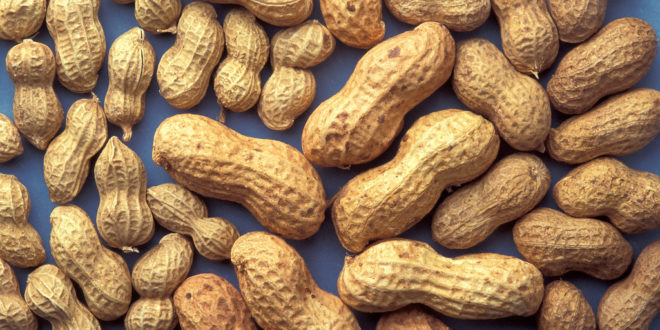By Laura Dolejs
WASHINGTON, DC (AP) – The Food and Drug Administration has approved the first treatment for children and teens with peanut allergies. While not a cure, the approval of this treatment may bring some relief to families who live in fear of an accidental encounter with peanuts.
This new drug, called Palforzia, was developed by Aimmune Therapeutics. Palforzia is a specially prepared peanut powder that is administered orally. This powder is swallowed daily in small amounts which are gradually increased over time. The initial and subsequent increased doses are administered under medical supervision in case of a bad reaction. The goal of this treatment is to train the bodies of children and teens to better tolerate peanuts in an effort to minimize a serious reaction if accidentally ingested.
“Peanut allergy was a burden for me when I was younger,” said Nina Nichols, 18, of Washington, who had two accidental encounters with peanuts as a toddler that sent her to the emergency room. Nichols entered the Palforzia study as a teenager, and said that this treatment has changed her outlook on life, because “peanuts are not on my mind as much.”
The number of children with food allergies has increased in recent years. Peanut allergy is the most common and one of the most dangerous. According to Dr. Hemant Sharma, leader of the oral treatment studies at Children’s National Hospital in Washington, if a child accidentally ingests one-thirtieth of a single peanut they can experience hives, wheezing or worse.
Prior to Palforzia, doctors were only able to advise their patients with peanut allergy to carefully read all food labels, and to try to avoid any foods that might contain hidden peanuts. Work to develop a cure or treatment for peanut allergy has been ongoing for decades. In 2006, hope for a successful therapy started to grow when researchers at Duke University and the University of Arkansas reported intriguing signs that swallowed treatments might work.
Palforzia users must still avoid peanuts, and carry their rescue medicine, like an EpiPen, to treat severe allergic reactions. Also, if users stop taking the daily dose of Palforzia, they lose the protection.
Because of these drawbacks other allergy treatments like a daily patch that contains small amounts of peanut protein, shots to block allergic reactions for two to six weeks, and drops for under the tongue, are currently being researched.
“Palforzia is a step forward,” said Dr. Sharma. “What all of us hope for that would be truly revolutionary is a treatment that’s curative, that really gets rid of the food allergy permanently.”
 Mocs News Reporting the news that matters most to UTC
Mocs News Reporting the news that matters most to UTC




